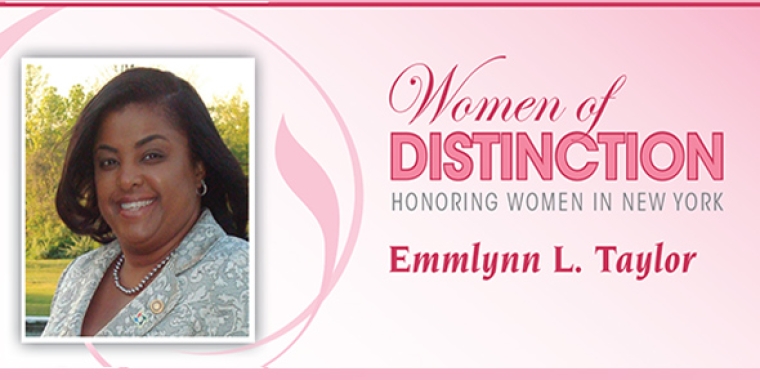
Choice Advocates Join Senate Minority To Call For Reproductive Rights
Malcolm A. Smith
May 7, 2007
SenateMinority joined with pro-choice advocates to call on the Senate Majority to "stand up to the Bush Administration and help us protect women's health and reproductive rights," Democratic Leader Malcolm A. Smith said today.
The call to action came on the heels of the Supreme Court's April 18 decision upholding the Federal abortion ban, which, for the first time since Roe v. Wade, makes no exception for a woman's health
"The Bush Supreme Court has demonstrated their willingness to impede and threaten women's rights," Smith said. "And our State Legislature may indeed become the last line of defense in the battle to protect the right of a woman to make her own health and family planning decisions."
Smith said given the recent court decision, "it is now more important than ever that the Republican Majority cease its divisive efforts to politicize this fundamental issue."
The Democratic Leader called on the Senate Majority to bring Governor Spitzer's program bill, the "Reproductive Health and Privacy Protection Act," to a vote in the Senate. Spitzer's measure would strengthen a woman's right to safe and legal reproductive planning options under state law. It will also reaffirm – at the state level – the basic principle of reproductive privacy rights established more than thirty years ago by the Supreme Court.
Smith was joined by Senators Andrea Stewart-Cousins (D-Westchester) and Diane Savino (D-Staten Island) as well as Kelli Conlon, president of the New York Chapter of the National Abortion and Reproductive Rights Action League (NARAL); Kathy Miller of the Alliance for Women's Health; JoAnn M. Smith, president and CEO of Family Planning Advocates of New York State (FPANYS); Marcia A. Pappas, president of the National Organization for Women – New York State (NOW) and Galen Sherwin from the NY Civil Liberties Union (NYCLU).
Stewart-Cousins said "New York State must remain a leader on the issue of choice. We must fight this unconscionable threat against women's health and privacy rights and ensure that we don't return to the dark days before Roe v. Wade."
Savino said the Supreme Court decision "is an attempt to chip away at the right to make our own personal health care decisions. If we don't stand up now, the Bush Supreme Court will eventually strip us of our right to safe and effective health care and family planning options."
Kathy Miller said, "The Women's Health Alliance applauds Senate Minority Leader Malcolm Smith and the Senate Democrats for supporting the Reproductive Health and Privacy Protection Act. The Alliance represents more than thirty advocates and organizations working to achieve optimal health for every woman in New York State. The threat to women's health and privacy, as shown by last week's dangerous Supreme Court decision, is great. We call upon every lawmaker in Albany to join the Governor, Senator Smith, the Senate Democrats and our overwhelming pro-choice majority in New York, to protect the right of women-not politicians-to make these most private medical decisions."
Kelli Conlon, president of NARAL, said, " It is clear where Senator Smith and his colleagues stand: they know that our state needs an up-to-date, strong law that places the fundamental principles of Roe v. Wade squarely in New York law. The question for the Senate Republicans is very simple: will you upport Roe and leave it to a woman to decide, with her family and her doctor, when it is the right time to become a mother? New Yorkers are pro-choice; Republicans and Democrats across the State support a woman's right to choose and we must have the same bi-partisan support in the Senate."
JoAnn Smith, president of FPANYS, said "The Reproductive Health and Privacy Protection Act makes important clarifications in the law to protect women's health and current medical practice. "The Senators here today have listened to women and understand the need to safeguard the right to choice in New York. They will not turn their backs on women as the Supreme Court has done."
Christopher Estes, MD, a New York State member of Physicians for Reproductive Choice and Health said, "As a physician, I have a duty to offer the best possible care to my patients, and to help them understand all of the healthcare options that are available to them. This act will help every doctor in New York ensure that reproductive healthcare remains available to our patients, so they can make the decisions that are right for themselves and their families."
Marcia Pappas, from NOW-NYS, said, "We are proud that New York State has a Governor and a Senate Minority Leader, both of whom will stand firm to protect women's health. The National Organization for Women, and its half a million members and supporters will be looking to New York State for leadership in these troubled times."
The Supreme Court's April 18 decision (Gonzales v. Carhart) upholding a ban on late-term abortions, without any exception for a woman's health, is especially troubling because the procedure is often medically necessary to protect the health of a woman, according to the American College of Obstetricians and Gynecologists.
Senator Stewart-Cousins said "this decision makes it very clear that the Bush administration has managed to erode support for Roe v. Wade on the Supreme Court to a razor-thin margin." Repeal of Roe v. Wade would have disastrous effects for the women and families of New York, she said.
In 1965, illegal abortions accounted for 17 percent of all deaths due to pregnancy and childbirth. However, as reproductive freedoms were established in the law, the mainstream edicalestablishment was no longer prohibited from developing safe and effective abortion techniques. As a result, reproductive planning gained legitimacy, and women's health risks were reduced, to the point that less than 0.3 percent of women undergoing legal abortion procedures sustain aserious complication, according to Planned Parenthood Federation of America.
New York decriminalized abortion in 1970, three years before Roe v. Wade guaranteed a woman's Constitutional right to choose. The law was limited in that it permitted abortions within twenty-four weeks of pregnancy.
PROFILE OF POLITICAL COURAGE
Tuesday's press conference featured news accounts of the historic 1970 vote in the New York State Assembly, which included an act of unparalleled political courage by Assemblyman George Michaels of Auburn. The measure to legalize abortion had been hotly debated by the State Senate, which passed the measure 31 to 26. It was then taken up by the State Assembly a few weeks later on April 9. After roll call, the Assembly vote came to a tie.
Though the Assembly was divided, it took one lone voice to tip the balance, and, in the process, articulate the profound struggle between personal conviction and political motivation.
Before the measure to legalize abortion could be defeated, Assemblyman George Michaels stood up. He explained that he had discussed the issue in depth with his family, who had related to him the horrors of women who had received illegal, dangerous and in some cases deadly back-alley abortions.
Though he had just voted 'no' on the bill -- in deference to his conservative constituency – he now spoke eloquently and movingly about how his conscience would not allow him vote against the measure, even though he knew that supporting legalization would spell the end of his political career.
"Assemblyman Michaels is a true profile in courage," said Senator Stewart-Cousins. "Quite simply, his conscience would not allow him to put his own political career ahead of the lives and health of countless women forced to undergo illegal abortions."
Senator Savino said, "The question now is whether the Senate Majority possesses the same political courage Assemblyman Michaels demonstrated nearly 40 years ago."
New York's 1970 statute has never been updated. Until recently, there was no reason to do so since Supreme Court precedent under Roe v. Wade supersedes state law – for now.
Existing state law does not provide the same level of protection as Roe v. Wade. It merelydecriminalizes abortion without addressing the fundamental right to choose. While the legislature's act to decriminalize abortion was courageous and visionary 37 years ago, it needs to be modernized in a political climate hostile to reproductive rights.
Governor Spitzer's program bill, the "Reproductive Health and Privacy Protection Act" would strengthen a woman's right to safe and legal reproductive planning options under state law. It will also reaffirm – at the state level – the basic principle of reproductive privacy rights established more than thirty years ago by the Supreme Court. It also prohibits the state from denying, regulating or restricting these rights and provisions.
Other states, including California, Connecticut, Hawaii, Maine, Maryland, Nevada and Washington have already passed statutes recognizing a woman's fundamental right to make reproductive health decisions.
Share this Article or Press Release
Newsroom
Go to NewsroomEmmlynn L. Taylor
May 13, 2013



